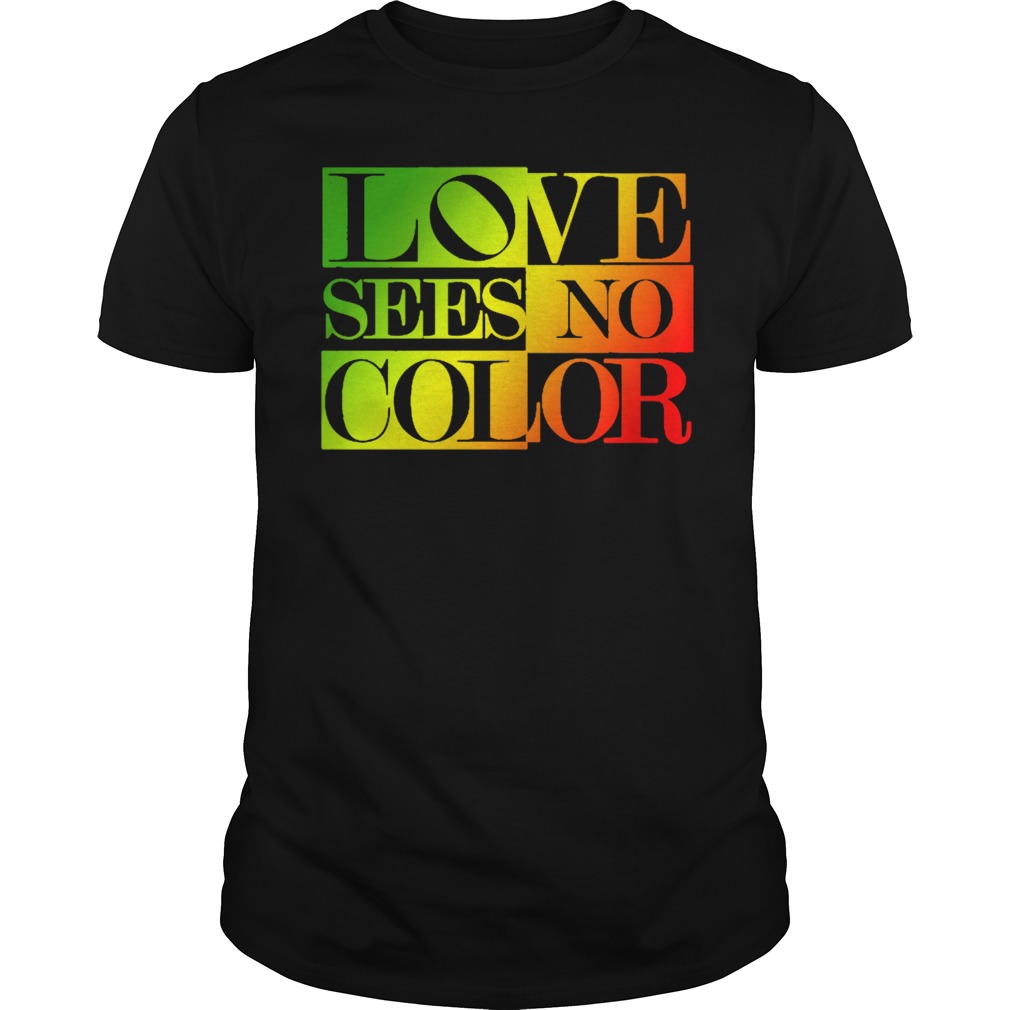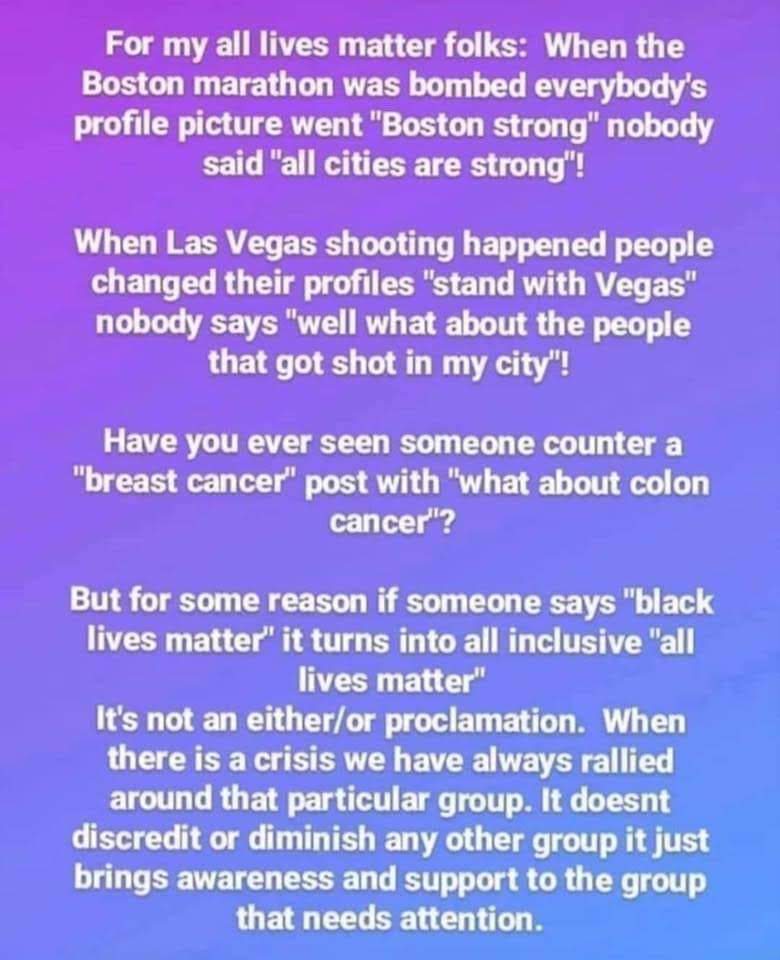The latest idea I’ve been mulling over is the notion of racial “color blindness,” usually expressed as, “I don’t see people as black, brown, etc. I just see people as people.”

From my own experience, I first started hearing/seeing the idea in the early 1990s through the “Love Sees No Color” t-shirt. It seemed like an attempt to practice the value of “tolerance,” another now-outmoded and hollow term from that era.
In hindsight “seeing no color” just enabled people to avoid something that made them uncomfortable and that they didn’t want to talk about in the first place. And it let them do it under the auspices that it would be “rude” to bring up the color of someone’s skin.
Yet somehow, ignoring or dismissing a part of someone’s identity is more polite or, as the t-shirt suggests, an act of love? Ask any person of color if 1) they’ve ever been told “I don’t see you as black, brown, etc.” and 2) that made them feel disregarded or ignored, and you’ll get a “yes” on both counts.
Anti-racism educator Jane Elliott has some pointed words for those who say, “I don’t see color.”
In preparation to write this post, I wanted to find out where the notion of racial color blindness came from. A cursory search didn’t turn up a lot of information on its history, since there doesn’t seem to be any one person or group who coined the phrase or who can be credited for its use. Ironically, the idea seems to have evolved from part of Dr. Martin Luther King, Jr.’s I Have a Dream speech, where he says:
“I have a dream that my four little children will one day live in a nation where they will not be judged by the color of their skin but by the content of their character.”
But I very much doubt the ideology of “I don’t see color” is what Dr. King had in mind when he wrote that.
There have been many suggested reading lists shared for those who want to educate themselves further about race and racism in America – this is one example making the rounds.
Personally, because of my own curiosity about racial color blindness as an ideology, I’m going to start with Meghan Burke’s Colorblind Racism, which appears to fully track and dissect its history and practice. For those who may not want such an exhaustive study of the topic, there’s a great article featuring Burke and fellow sociologist Eduardo Bonilla-Silva (Racism without Racists) discussing the issue – Being “Color Blind” Doesn’t Make You Not Racist—In Fact, It Can Mean the Opposite.



